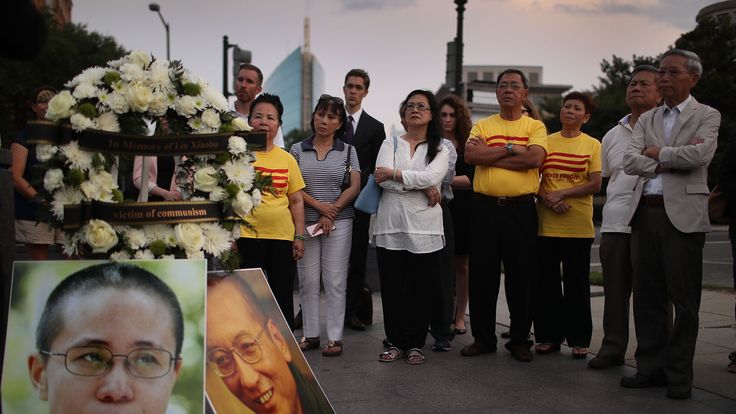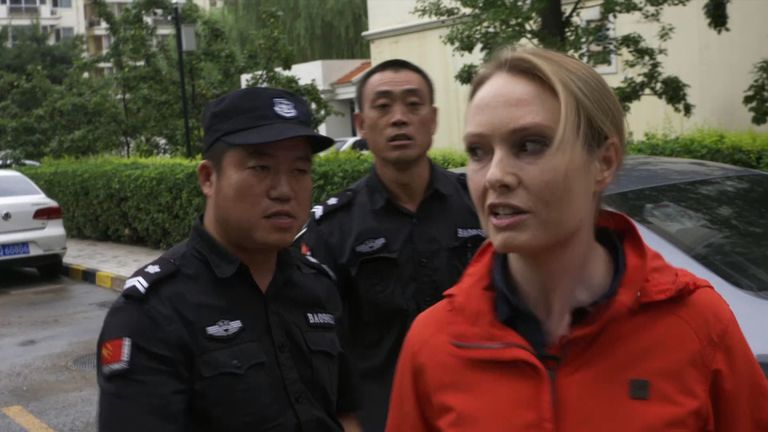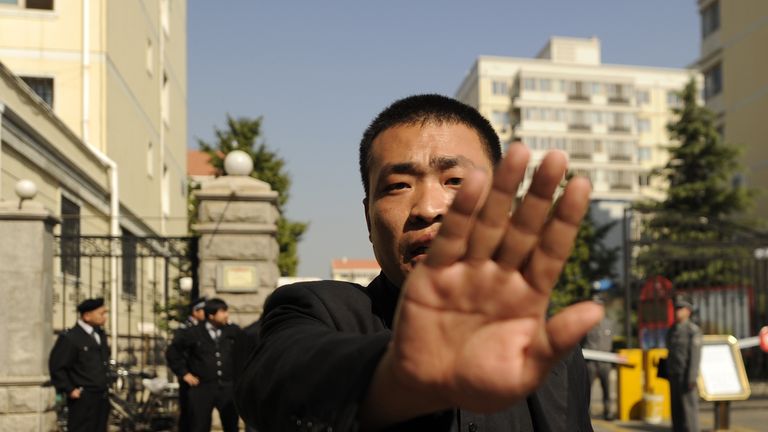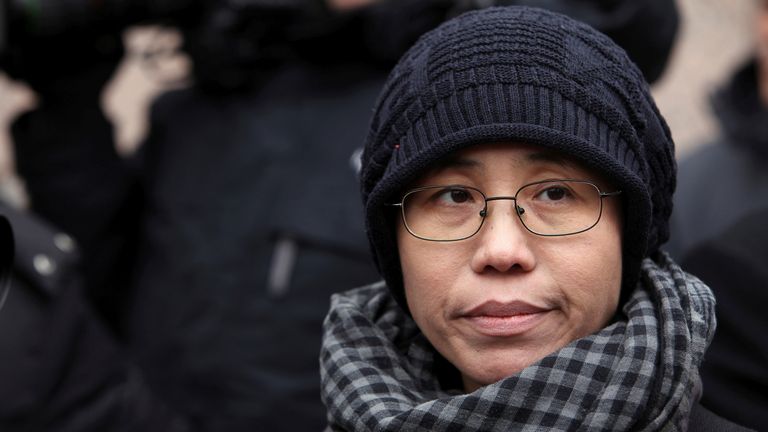Where is 'free' widow of Chinese Nobel winner?

Tuesday 25 July 2017 06:24, UK
Katie Stallard, Asia Correspondent
Liu Xia is a poet and an artist.
She has never been convicted, or even accused of breaking any law.
And yet she has spent the last seven years in isolation, for the most part cut off from her family and friends, and under constant, relentless surveillance.
Apart from monthly visits to see her husband, the Nobel laureate Liu Xiaobo, 400 miles away in prison, and supervised grocery shopping trips, she has lived under what amounts to house arrest.
She has suffered severe depression, anxiety, and according to the couple's friends, a heart attack in recent years.
"I am tired," she wrote in a poem in 2016. "I am tired of my white pills, I am tired of my smiles at you, I am tired of toilets on trains, I am tired of your reputation, I am tired of my heart tiring.
"I am tired of the cage, my love. I am tired."
Her 'crime', in the eyes of China's Communist Party, was to marry her husband - the democracy campaigner Liu Xiaobo.
They met as young intellectuals in Beijing and married while he was at a labour camp in 1996.
Her punishment began in 2010, when he was awarded the Nobel Peace Prize for his "long and non-violent struggle for fundamental human rights in China".
Liu Xiaobo was back in prison by then, near the start of what would be his final sentence - an 11-year term for "inciting state subversion" after co-authoring a petition calling for political reform.
There was no trial for Liu Xia.
Instead, she was silently confined to her home, and sealed from unauthorised contact with the outside world.
Her father died last year, followed by her mother earlier this year.
In May, her husband was diagnosed with end-stage liver cancer, which his Chinese doctors said was beyond treatment.
Liu Xiaobo was "released" on medical parole to a hospital in northeast China, but remained under guard in his bed.
His last request - to leave China with his wife for treatment abroad - was denied, despite two foreign doctors saying he was well enough to travel. He died there on 13 July.
The last Nobel laureate to die in custody was in Nazi Germany in 1938.
The torment for his widow has not ended there.
She was last seen in government-issued photographs of her husband's funeral and sea burial, presumably intended to show that everything had been done with the family's consent, despite none of her close friends being able to attend, speak to her, or having ever heard any indication that Liu Xiaobo wished to be buried at sea.
Now Liu Xia has disappeared.
When we tried to visit her apartment, we were surrounded, forcibly removed by security guards, and trailed out of the area by police.
She is rumoured to have been taken to the far southwest of China, but wherever she is, she has been unable to contact her lawyer or family friends.
You might think this would elicit an outcry: a Nobel laureate dies in custody, and then his widow disappears.
But thus far, the international response has been tepid.
There have been foreign ministerial level statements of condolence and concern, with Boris Johnson calling for China to "lift all restrictions on his widow, Liu Xia", but nothing from Prime Minister Theresa May.
In the hours after Liu Xiaobo died, Donald Trump described Xi Jinping as "a terrific guy" who "wants to do what's right for China".
A White House statement later said he was "deeply saddened" by the death, but made no mention of the continued detention of his wife.
As I write this, Liu Xia remains missing, her friends are increasingly distraught, but it appears to be business as usual in dealings with China.
Presumably we will be assured by respective governments at intervals that this issue is being raised robustly with Chinese officials in private.
But this "issue" is a 56-year-old poet - a woman who has just lost her husband, who has already lost years of her life, love and health, and who, despite committing no crime, appears still to be being held, incommunicado, somewhere in China.
Sky Views is a series of comment pieces by Sky News editors and correspondents, published every morning.
Previously on Sky Views:





